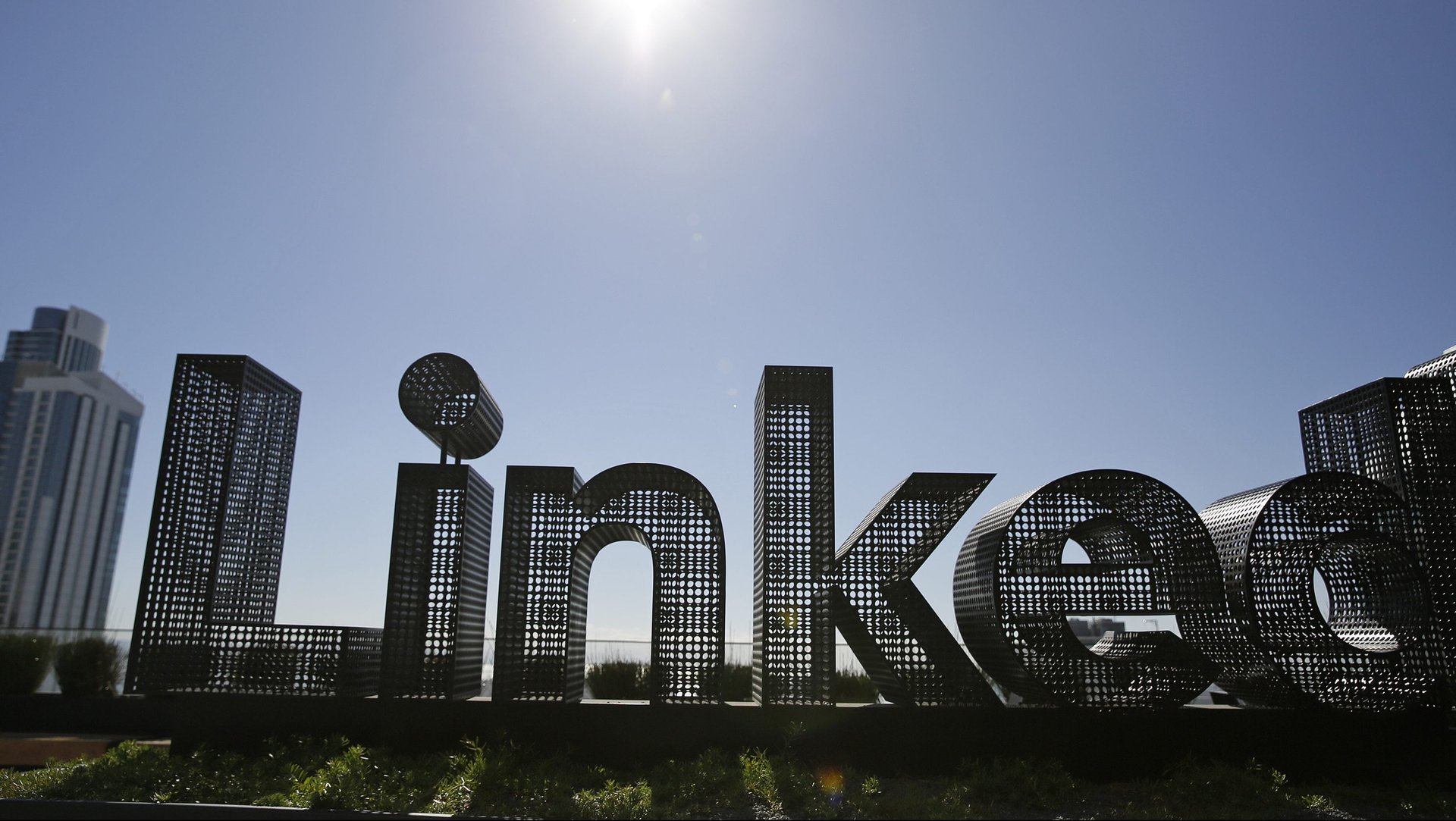LinkedIn data can predict how likely you are to quit, and it’s being sued to keep it public
LinkedIn has 500 million profiles online, an extraordinary wealth of information about the education and career paths of nearly 7% of all of humanity—and an absolute treasure trove for companies that build recruitment and human resources software. One of them is hiQ Labs, a startup that scrapes LinkedIn data to build an algorithm to predict whether employees will quit.


LinkedIn has 500 million profiles online, an extraordinary wealth of information about the education and career paths of nearly 7% of all of humanity—and an absolute treasure trove for companies that build recruitment and human resources software. One of them is hiQ Labs, a startup that scrapes LinkedIn data to build an algorithm to predict whether employees will quit.
HiQ relies on the small portion of Linked profiles that are publicly available, and sells its products to employers looking to prevent their best workers from jumping ship. It’s suing LinkedIn—now a unit of Microsoft—to ensure it keeps access to the data, a preemptive strike after LinkedIn sent hiQ a cease-and desist letter in May, according to the Wall Street Journal (paywall).
LinkedIn says its data is proprietary, and says that hiQ violates hacking statutes by scraping its data. HiQ says LinkedIn is stretching the definition of the law, and is asking a federal judge to declare it has acted legally.
LinkedIn argues hiQ is violating the trust LinkedIn users place in the site. HiQ’s algorithm scours LinkedIn pages for profiles that have recently been updated, a sign that the person behind the profile may be looking for a new gig. “If LinkedIn members knew that hiQ was accessing and collecting their data in this manner, many would not update their profiles,” LinkedIn told the courts, according to the Journal
In an email to Quartz, hiQ CEO Mark Weidick said LinkedIn is trying to muscle into its business:
I’m a huge fan of the idea behind LinkedIn and always have been. I’ve been found, and found people, through the information we all choose to make public on LinkedIn. We understand LinkedIn wants to get into our business, and that’s fine. But LinkedIn is trying to illegally force out a smaller competitor so that they can have the business for themselves, plain and simple.
As social media sites like LinkedIn and Facebook grow to gargantuan size, they’re attracting smaller companies that feed off them, like the remora that cling to the bellies of a great white shark. Often the parasite goes unnoticed, until it makes a pest of itself.
LinkedIn is in the odd position of arguing that web pages available to the public are not, in fact, public after a third party has figured out how to make money off them. It’s not unlike when Major League Baseball tried to declare that the statistics its players generated were its intellectual property, only after fantasy sports sites began to cash in on them.
In this case, it appears hiQ has discovered a useful application for LinkedIn’s data, but its scope is limited by having access to only 175,000 profiles. Given LinkedIn’s push into selling human-resource services to corporations, providing insight into the plans of employees is a smart business. Perhaps the solution is striking a deal with hiQ to give it access to the rest of the data for a fee, or perhaps LinkedIn should just buy it outright.